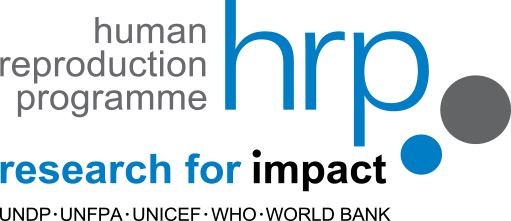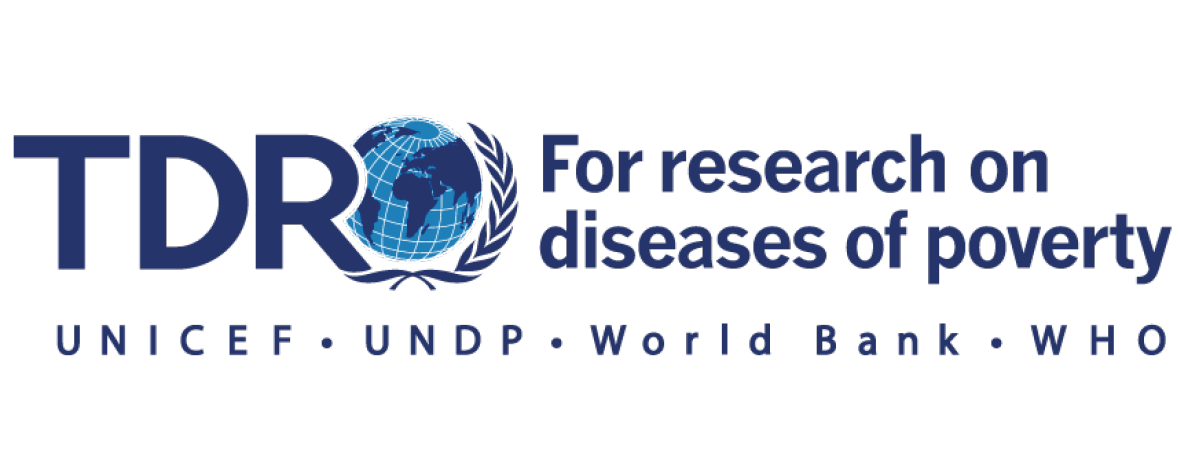
Incorporating intersectional gender analysis into research on infectious diseases of poverty: a toolkit for health researchers
This toolkit aims to strengthen the capacity of researchers working on infectious diseases of poverty by incorporating an intersectional gender approach. The objectives of this document are to: 1) strengthen the research capacity of disease-affected countries in intersectional gender approaches; 2) understand and address barriers to effective and quality implementation of health interventions oriented to prevent and control infectious diseases; and 3) explore solutions for enhancing equality in access to quality health care.
Incorporating intersectional gender analysis into research on infectious diseases of poverty: a toolkit for health researchers. Geneva: World Health Organization; 2020. Licence: CC BY-NC-SA 3.0 IGO.
Module 1: Understanding gender, sex and intersectionality and why it matters for infectious diseases of poverty. Module 2: Getting to grips with how to approach intersectional gender analysis for research on infectious diseases of poverty. Module 3: Gender considerations within the design and development of research: data disaggregation and gender frameworks. Module 4: Gender considerations within the design and development of research: developing gender analysis questions. Module 5: Research methods to transform inequitable gender norms. Module 6: Gender considerations within the data collection process. Module 7: Analysing research data using an intersectional gender lens. Module 8: Incorporating an intersectional gender lens into implementation research on infectious diseases of poverty. Module 9: Gender considerations within the dissemination and reporting of infectious disease research.

Incorporating intersectional gender analysis into research on infectious diseases of poverty: a toolkit for health researchers
This toolkit aims to strengthen the capacity of researchers working on infectious diseases of poverty by incorporating an intersectional gender approach. The objectives of this document are to: 1) strengthen the research capacity of disease-affected countries in intersectional gender approaches; 2) understand and address barriers to effective and quality implementation of health interventions oriented to prevent and control infectious diseases; and 3) explore solutions for enhancing equality in access to quality health care.
Incorporating intersectional gender analysis into research on infectious diseases of poverty: a toolkit for health researchers. Geneva: World Health Organization; 2020. Licence: CC BY-NC-SA 3.0 IGO.
Module 1: Understanding gender, sex and intersectionality and why it matters for infectious diseases of poverty. Module 2: Getting to grips with how to approach intersectional gender analysis for research on infectious diseases of poverty. Module 3: Gender considerations within the design and development of research: data disaggregation and gender frameworks. Module 4: Gender considerations within the design and development of research: developing gender analysis questions. Module 5: Research methods to transform inequitable gender norms. Module 6: Gender considerations within the data collection process. Module 7: Analysing research data using an intersectional gender lens. Module 8: Incorporating an intersectional gender lens into implementation research on infectious diseases of poverty. Module 9: Gender considerations within the dissemination and reporting of infectious disease research.

Incorporating intersectional gender analysis into research on infectious diseases of poverty: a toolkit for health researchers
Developed by:
This toolkit aims to strengthen the capacity of researchers working on infectious diseases of poverty by incorporating an intersectional gender approach. The objectives of this document are to: 1) strengthen the research capacity of disease-affected countries in intersectional gender approaches; 2) understand and address barriers to effective and quality implementation of health interventions oriented to prevent and control infectious diseases; and 3) explore solutions for enhancing equality in access to quality health care.
Incorporating intersectional gender analysis into research on infectious diseases of poverty: a toolkit for health researchers. Geneva: World Health Organization; 2020. Licence: CC BY-NC-SA 3.0 IGO.
Module 1: Understanding gender, sex and intersectionality and why it matters for infectious diseases of poverty. Module 2: Getting to grips with how to approach intersectional gender analysis for research on infectious diseases of poverty. Module 3: Gender considerations within the design and development of research: data disaggregation and gender frameworks. Module 4: Gender considerations within the design and development of research: developing gender analysis questions. Module 5: Research methods to transform inequitable gender norms. Module 6: Gender considerations within the data collection process. Module 7: Analysing research data using an intersectional gender lens. Module 8: Incorporating an intersectional gender lens into implementation research on infectious diseases of poverty. Module 9: Gender considerations within the dissemination and reporting of infectious disease research.

Incorporating intersectional gender analysis into research on infectious diseases of poverty: a toolkit for health researchers
This toolkit aims to strengthen the capacity of researchers working on infectious diseases of poverty by incorporating an intersectional gender approach. The objectives of this document are to: 1) strengthen the research capacity of disease-affected countries in intersectional gender approaches; 2) understand and address barriers to effective and quality implementation of health interventions oriented to prevent and control infectious diseases; and 3) explore solutions for enhancing equality in access to quality health care.
Incorporating intersectional gender analysis into research on infectious diseases of poverty: a toolkit for health researchers. Geneva: World Health Organization; 2020. Licence: CC BY-NC-SA 3.0 IGO.
Module 1: Understanding gender, sex and intersectionality and why it matters for infectious diseases of poverty. Module 2: Getting to grips with how to approach intersectional gender analysis for research on infectious diseases of poverty. Module 3: Gender considerations within the design and development of research: data disaggregation and gender frameworks. Module 4: Gender considerations within the design and development of research: developing gender analysis questions. Module 5: Research methods to transform inequitable gender norms. Module 6: Gender considerations within the data collection process. Module 7: Analysing research data using an intersectional gender lens. Module 8: Incorporating an intersectional gender lens into implementation research on infectious diseases of poverty. Module 9: Gender considerations within the dissemination and reporting of infectious disease research.

Incorporating intersectional gender analysis into research on infectious diseases of poverty: a toolkit for health researchers
This toolkit aims to strengthen the capacity of researchers working on infectious diseases of poverty by incorporating an intersectional gender approach. The objectives of this document are to: 1) strengthen the research capacity of disease-affected countries in intersectional gender approaches; 2) understand and address barriers to effective and quality implementation of health interventions oriented to prevent and control infectious diseases; and 3) explore solutions for enhancing equality in access to quality health care.
Incorporating intersectional gender analysis into research on infectious diseases of poverty: a toolkit for health researchers. Geneva: World Health Organization; 2020. Licence: CC BY-NC-SA 3.0 IGO.
Module 1: Understanding gender, sex and intersectionality and why it matters for infectious diseases of poverty. Module 2: Getting to grips with how to approach intersectional gender analysis for research on infectious diseases of poverty. Module 3: Gender considerations within the design and development of research: data disaggregation and gender frameworks. Module 4: Gender considerations within the design and development of research: developing gender analysis questions. Module 5: Research methods to transform inequitable gender norms. Module 6: Gender considerations within the data collection process. Module 7: Analysing research data using an intersectional gender lens. Module 8: Incorporating an intersectional gender lens into implementation research on infectious diseases of poverty. Module 9: Gender considerations within the dissemination and reporting of infectious disease research.

Incorporating intersectional gender analysis into research on infectious diseases of poverty: a toolkit for health researchers
This toolkit aims to strengthen the capacity of researchers working on infectious diseases of poverty by incorporating an intersectional gender approach. The objectives of this document are to: 1) strengthen the research capacity of disease-affected countries in intersectional gender approaches; 2) understand and address barriers to effective and quality implementation of health interventions oriented to prevent and control infectious diseases; and 3) explore solutions for enhancing equality in access to quality health care.
Incorporating intersectional gender analysis into research on infectious diseases of poverty: a toolkit for health researchers. Geneva: World Health Organization; 2020. Licence: CC BY-NC-SA 3.0 IGO.
Module 1: Understanding gender, sex and intersectionality and why it matters for infectious diseases of poverty. Module 2: Getting to grips with how to approach intersectional gender analysis for research on infectious diseases of poverty. Module 3: Gender considerations within the design and development of research: data disaggregation and gender frameworks. Module 4: Gender considerations within the design and development of research: developing gender analysis questions. Module 5: Research methods to transform inequitable gender norms. Module 6: Gender considerations within the data collection process. Module 7: Analysing research data using an intersectional gender lens. Module 8: Incorporating an intersectional gender lens into implementation research on infectious diseases of poverty. Module 9: Gender considerations within the dissemination and reporting of infectious disease research.

Incorporating intersectional gender analysis into research on infectious diseases of poverty: a toolkit for health researchers
This toolkit aims to strengthen the capacity of researchers working on infectious diseases of poverty by incorporating an intersectional gender approach. The objectives of this document are to: 1) strengthen the research capacity of disease-affected countries in intersectional gender approaches; 2) understand and address barriers to effective and quality implementation of health interventions oriented to prevent and control infectious diseases; and 3) explore solutions for enhancing equality in access to quality health care.
Incorporating intersectional gender analysis into research on infectious diseases of poverty: a toolkit for health researchers. Geneva: World Health Organization; 2020. Licence: CC BY-NC-SA 3.0 IGO.
Module 1: Understanding gender, sex and intersectionality and why it matters for infectious diseases of poverty. Module 2: Getting to grips with how to approach intersectional gender analysis for research on infectious diseases of poverty. Module 3: Gender considerations within the design and development of research: data disaggregation and gender frameworks. Module 4: Gender considerations within the design and development of research: developing gender analysis questions. Module 5: Research methods to transform inequitable gender norms. Module 6: Gender considerations within the data collection process. Module 7: Analysing research data using an intersectional gender lens. Module 8: Incorporating an intersectional gender lens into implementation research on infectious diseases of poverty. Module 9: Gender considerations within the dissemination and reporting of infectious disease research.





